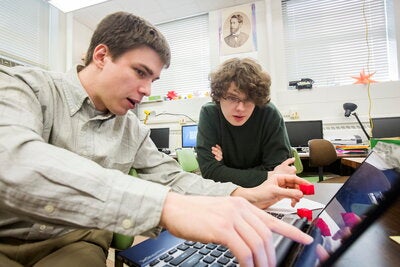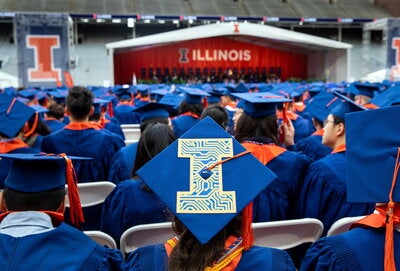Research shows that students, particularly those in STEM fields, perform better when they enjoy their academic environment and feel connected to their community. In other words, students will generally succeed and continue to work toward their goals when they feel a sense of belonging amongst their peers, faculty, and staff. While the university offers many opportunities for students to grow supportive networks of friends, professors, and other academic professionals, many of those opportunities require students to seek them out and tend to occur outside the classroom. Even high-achieving learners can experience challenges navigating the complex facets of a large research university, including financial challenges, a limited understanding of opportunities available, or a combination of these factors and more. These challenges can leave students feeling isolated—and therefore less likely to “stay the course” of remaining in their first-choice major and achieving their academic and professional goals.

That’s where the Merit Mentoring and Professional Network comes in. Thanks to grant funding from the College of Liberal Arts and Science’s (LAS) Student Success Initiative, the Merit Program for Emerging Scholars is launching a project designed to provide mentoring and networking opportunities to the LAS STEM students who need them most. The Merit Program at UIUC serves students from underrepresented racial or ethnic groups, first-generation students, and students from rural communities interested in areas related to science, mathematics, and engineering. Students invited to the program have high academic potential and are committed to excellence. However, like many other students, they face challenges related to the transition to college.
One of the main pillars of the Merit Mentoring and Professional Network (MPN) is to help participants manage and overcome these challenges. To this end, project leaders have designed the MPN as a 1-credit-hour course offered over eight weeks. In this course, students will be directly connected to graduate student and peer mentors, community building activities, and professional development opportunities. Instead of putting the onus on students to navigate through an unfamiliar environment to find out what they need to know, the MPN will bring information and opportunities directly to them. Even more notably, some participating students will have opportunities to connect to paid undergraduate research or other co-curricular opportunities the following spring semester.
The MPN is set to launch during the latter half of the upcoming fall semester. Organizers are currently recruiting first- and second-year undergraduate students to participate in the course (LAS 199). To sign up, students may register for the course on their own or reach out to organizers for more information at meritprogram@illinois.edu.
The Merit Program also seeks grad students and junior or senior undergrads who are interested in being mentors for the project. Hired mentors will be compensated with a $300 stipend for the semester. Eligible students who are interested in becoming a mentor should visit the Merit Program website.
